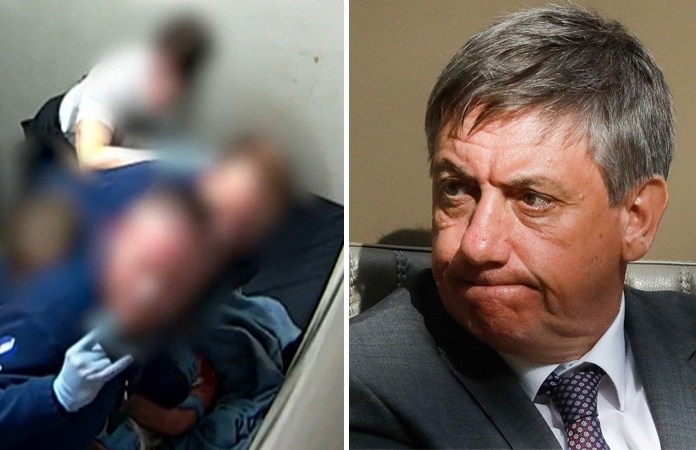A police chief was on duty the night of the fatal arrest of a Slovak man in Charleroi Airport, Belgium's justice minister said on Wednesday, in statements which shed new light on authorities' handling of the controversial and fatal arrest.
Justice Minister Koen Geens told MPs leading a parliamentary inquiry into the arrest that Danny Elst, the chief of the federal police's airport division, was working on the night of the events.
Geens said that, for that reason, Charleroi prosecutors opted not to inform federal police of the controversial nature of footage of the 2018 arrest of 38-year-old Jozef Chovanec even if they obtained it early on after the facts.
Related News
- European Parliament pushes Belgium for 'truth' in fatal Charleroi arrest
- Fatal Charleroi arrest: Slovakia wants special envoy to investigate custody death
- Fatal Charleroi arrest: widow accuses Belgian officials of 'cover up'
"Since the police were so intimately involved —the chief of the airport police was on call that night— the prosecutor's office assumed that the police was in the know," Geens said.
"That is why they did not think they needed to take the initiative of informing [the police's] disciplinary authorities."
After the release of the footage spurred media and political storm and thrust the affair back into the spotlight, top federal police officials said they were not aware of the footage nor of the behaviour of police officers shown in them, the Belga news agency reports.
Videos of the arrest released last month showed officers performing a string of controversial actions: one officer can be seen performing a Nazi salute as others laugh; another officer is seen making a rock and roll sign and one is shown kneeling on top of Chovanec for several minutes even if the latter did not appear to show any physical resistance.
The footage showed that, moments before officers stepped in the cell, Chovanec was acting erratically and hurting himself, banging his head against the door until he bled.
Geens' comments bring increasing clarity into the chain of decisions taken by law enforcement authorities —including police, prosecutors and federal government ministers— and come as Belgium faces increasing international pressure to resolve the investigation, still inconclusive more than 2 years after the facts.
An ongoing parliamentary inquire into the fatal arrest —launched only after the footage emerged in media— has so far revealed that the former interior minister and current leader of the Flemish region, Jan Jambon, was made aware of the arrest.
While he initially said that he did not know anything about the facts before now, Jambon later backtracked and said he had held a "short meeting" with the Slovak ambassador in Belgium, but claimed the details of the meeting were hazy.
Top officials at the foreign affairs ministry were also aware of the Chovanec's death days after the arrest, namely after they received a letter from Slovak authorities asking for an explanation of the facts.
In an address on Tuesday, European Parliament President David Sassoli called for a "full investigation" into the man's death, in statements which follow a string of calls from Slovak officials for Belgium to get to the bottom of the affair.
Chovanec's widow has expressed distrust in the investigation, accusing top government and law enforcement officials of a cover-up and saying she does not believe the official account which states her husband died of a heart attack after he was taken to the hospital.
“I’m pretty sure he died in the cell," she said. "I believe he was suffocated by police, the heart attack was just an excuse to cover everything up."
As the inquire continues, members of the Chamber's Justice Committee are next week set to question André Desenfants, one of two top federal police officials who stepped down from their functions following the media storm spurred by the footage.
Gabriela Galindo
The Brussels Times

